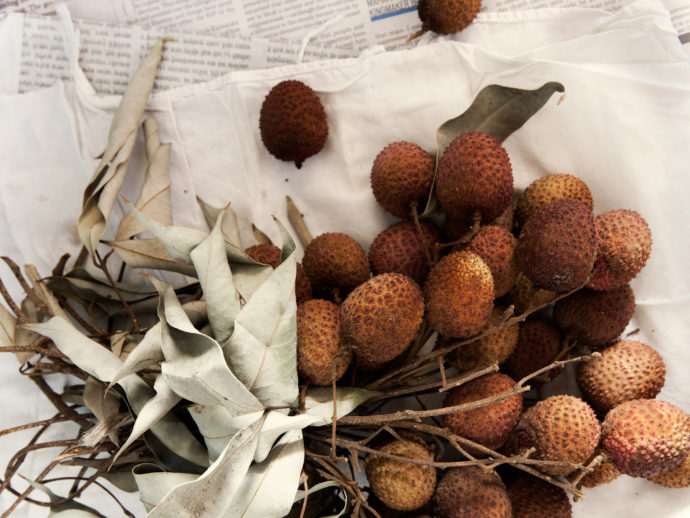Fungi for our health
How fungus micro-organisms benefit us
Microscopic fungi are constantly finding their way inside us as we eat and breathe. But not to worry: the fungal community that ends up in our gut just might have a special role in maintaining our health.
What’s going on inside?
Fungi are a group of micro-organisms, including yeasts and molds, that are mostly large and/or made of multiple cells—in contrast with bacteria, their smaller, single-celled peers. The genes of fungi reveal they come from a completely different domain of organisms on the tree of life and are more closely related to animals than plants.
What makes fungi different from other gut residents is that they’re particularly representative of the external environment. They arrive in our bodies in a constant stream, only sometimes sticking around long term. Because the human body temperature is not hospitable to many fungi, only select species are able to colonize. So if a particular species of fungi is in our gut at one point in time, there’s no guarantee the same species will be detectable the next day or the next week.
Bacteria and fungi may have direct interactions in the complex gut ecosystem, and fungi in the gut that come from our diet or environment seem to have an impact on overall gut ecology.
Therapeutic fungi
Microbiologist Dr. Juliana Ansari cites an example of an ancient remedy that turned into a modern digestive cure, with a species of yeast as the active player. She says, “The probiotic yeast Saccharomyces boulardii was discovered nearly a century ago, from lychee fruit skins, which people used to [consume] to relieve diarrhea.”
Now, she says, the latest scientific research appears to back this original health application of the probiotic yeast. Additional evidence shows its usefulness in preventing diarrhea associated with Clostridium difficile infection, commonly acquired in hospitals.
Fungi in IBD and more
New research is showing other possible areas of therapeutic benefit for “friendly” fungi. Inflammatory bowel disease (IBD) is of particular interest, as French researchers recently found evidence of disturbed fungal communities in the guts of those with IBD, as compared to healthy individuals.
Evidence also suggests that proliferation of a yeast species may increase gut inflammation, leading some scientists to believe antifungal treatments could be a new therapeutic avenue for IBD.
Obesity is another condition in which fungi may be relevant. One study showed the species of fungi detected in obese individuals were significantly different from those detected in non-obese individuals. In particular, fungi in the Mucor genus were decreased in the heavier individuals and were restored to more typical levels when the individuals lost weight.
Future fungal research
Which fungal species in the gut ecosystem are the most influential for health? This is the question scientists need to tackle in future research.
With scientists gathering more intel on the fungi of the gut ecosystem and how they relate to health and disease, your daily supplement ai funghi may be just what the doctor ordered.

